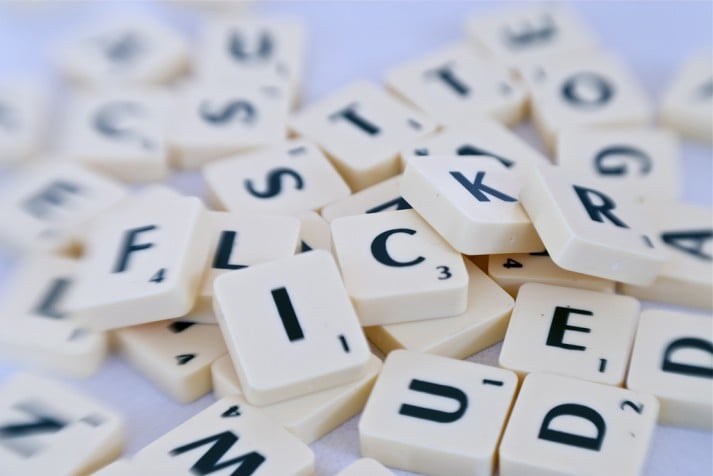7 Tricky Words to Spell in English (And How to Remember Them)
 Native speakers of English don’t really realize how absolutely insane some of the rules of the language can be – even teachers of English can sometimes find the rules they need to teach their students dizzying, and with so many exceptions, they often seem a bit more like guidelines that steadfast anchors. English spelling can be tricky – even for native speakers – to follow. Here’s a list of words that are terrible to spell, and are often confused and misspelled:
Native speakers of English don’t really realize how absolutely insane some of the rules of the language can be – even teachers of English can sometimes find the rules they need to teach their students dizzying, and with so many exceptions, they often seem a bit more like guidelines that steadfast anchors. English spelling can be tricky – even for native speakers – to follow. Here’s a list of words that are terrible to spell, and are often confused and misspelled:
1. Acceptable.
(adj) From the verb ‘to accept’, it originates from the Latin ‘accipere’ meaning ‘to take something to oneself’.
There are so many pitfalls to this word. Is it –able or –ible? The use of the schwa in English often makes it difficult to tell what vowel sound you’re pronouncing (the schwa is a shortened, neutral vowel sound that’s usually pronounced like a short ‘U’ sound in North American dialects. In pronunciation it’s often heard in place of just about any vowel where the sound stress is not necessary). Add onto that the double ‘C’, and it’s completely understandable if you make a mistake. If you keep in mind the phrase “accept any table” you should remember which vowel you need.
2. Cemetery.
(noun) A burial ground; from the Greek word koiman meaning to put to sleep and koimeterion meaning dormitory.
Table of Contents
This is another word where the schwa may be the biggest hurdle in your ability to spell it. The natural inclination may be to put a –ary instead of an –ery, as often when it’s spoken it sounds more like an ‘A’ is used. Remember that this word has nothing but ‘E’s throughout, and fight the instinct to add an ‘A’!
3. Guarantee.
(noun) A formal promise that certain conditions will be met and fulfilled (usually done in writing); from the Spanish word ‘garante’.
To start with, you’re immediately thrown a curveball, as the word doesn’t end in a ‘Y’ but instead ends in two ‘E’s. This is a natural stumbling block and the added ‘U’ makes this word even trickier to spell! It should be said that the word ‘guaranty’ does exist but is used more as a financial or economical term, whereas ‘guarantee’ covers a much broader and wider-ranging use of the term.
4. Inoculate.
(verb) From the noun, ‘inoculation’; the act of injecting someone (often with an antigen or a microorganism of some kind) to help prevent a disease or infection.
Innoculate, enokulate, inockulate… really any of these terrible spellings could easily be substituted by accident when writing ‘inoculate’. A good mnemonic device for this word is that one shot in the ‘I’ (referring of course to the ‘N’) is enough.
5. Playwright.
(noun) A person who writes plays or dramatic pieces for the stage or a performance. First known usage of the word ‘playwright’ was in 1616.
A playwright is a person who writes plays, so surely we should call them playwrites? Wright in this case comes from the idea that play writers used to be called ‘play workers’ in Old English, and wright is an older form of work, along the same lines of blacksmithing. Wright was used in this sense to refer to anyone who was skilled in working or creating something, though for the most part this usage has fallen by the wayside.
6. Principal vs Principle.
Principal: (noun) A headmaster of a school
vs
Principle: (noun) A belief
These two are often mixed up as they are homophones, meaning that they sound the same but are spelled differently and mean different things. ‘Principal’ is the person in charge of a school, and ‘principle’ is a reason or a belief. The easiest way to note the difference in spelling between the two is that the principal at your school is your ‘pal’ or your friend – remembering that is the best way to figure out which principle or principal you need.
7.Their, there, they’re.
Their: (determiner) Belonging to those previously mentioned
There: (adverb) In that position, or place
They’re: (contraction) They are
These words are often used improperly, as their spelling is often confused in some way. Let’s break it down. They’re = they are, and can be used whenever you’re talking about something they are defined by, are doing, or are feeling (they’re going to Thailand tomorrow). There = a place. The best possible way to remember this one is that ‘here’ is inside ‘there’ (they’re going there tomorrow), as both here and there both have to do with places. Then there is their, used when talking about something that is owned by ‘them’ (Their tickets to Thailand were really cheap!). I know I’m personally guilty of mixing these up, though I blame it on a wandering mind.









